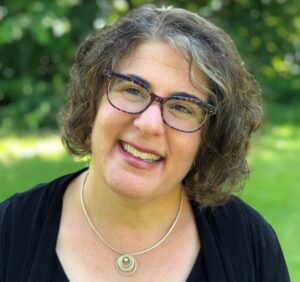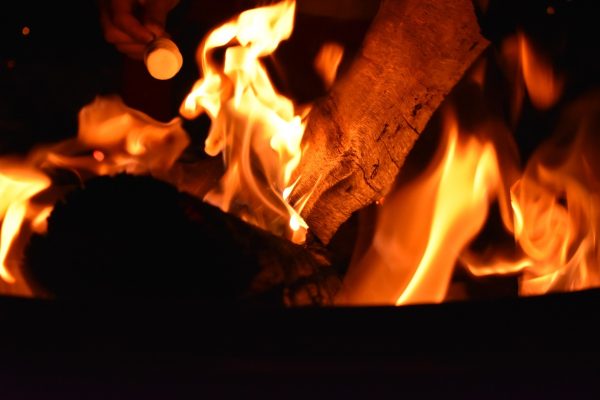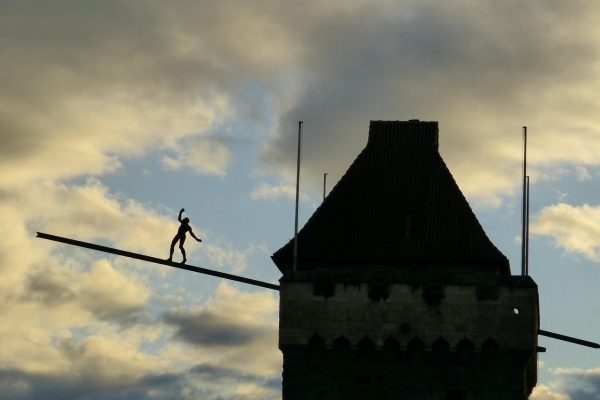On New Year’s Day I got a text from my normally upbeat friend that said “Happy (horrific) New Year.” At 82, she is not a novice at experiencing challenging times, so it felt especially poignant. With the war raging between Hamas and Israel, climate change becoming more real and the anxiety about the 2024 elections rising, I suspect many of us share her sentiment. It can be hard to be hopeful or know what to do when we witness so much violence, polarization and despair in the world around us. When we think about repairing the world, we can feel powerless: how do we end the war or change oppressive systems that shape our country?
Looking to Jewish tradition, which has faced such questions over the centuries can be empowering. Early in the first book of the Torah, we are confronted with a time when “the earth is filled with violence” (Genesis 6:13). God’s solution to the problem is to destroy the world and only save Noah, his family and two of every living creature. Essentially God has decided to do an almost total redo of creation. God saves Noah and the animals by putting them in an ark while the world is flooded.
Commentators ask why God saved them in this particular manner. What are we to learn from God’s putting them all together on the ark? One answer is that life on the ark was to teach us about the importance of kindness. Mussar master Rabbi Chaim Friedlander taught that “repairing and improving the world of the generation of the flood was specifically by way of Noah’s hesed work on the ark.” Hesed is the divine attribute of grace or lovingkindness. The work of hesed is traditionally understood as acts of care and compassion. When we feed the hungry, visit the sick or care for the orphan we are doing acts of hesed.
Rabbi Friedlander expands the idea when talking about what Noah did on the Ark. He writes, “Noah’s and his children’s hesed work cannot be reduced to mere giving; rather, they had to know the characteristics and particular needs of each individual beast, livestock, and bird. This is what perfect hesed work is, when one can feel the needs of others and do the work of giving accordingly.”
What a powerful teaching for us as we start this new year in these difficult times. Rabbi Friedlander is teaching that Noah saved the world first by feeling the needs of others and then by giving to them. We are living in a time of deep polarization in which people are all too often only interacting with those who are like-minded. Too often dialogue across differences, even within our own communities and families, breaks down. We do not take the time to listen, or perhaps we are losing the skills, to try to understand the perspectives of others. We too often respond, and act based on our own experience and assumptions. Too often we fear placing ourselves in another’s shoes because it is hard to feel their pain. Or because it may destabilize our convictions and force us to challenge our own positions. We must fight our own resistance.
The Book of Psalms teaches that “the world is built on hesed” (Psalm 89:3). Rabbi Friedlander, in his exploration of Noah’s saving of the world, understands this line to mean not only, as others in the Musar tradition do, that the world was built on foundation of kindness but also that the existence of the world depends on the virtue of kindness.
I believe that the world does depend on the virtue of hesed. Cultivating empathy and taking seriously doing acts of care and compassion is powerful. It is not attention grabbing and often goes quietly unrecognized, but it is what holds our communities together. It is what connects us to people in need and people who are different from ourselves. It is something each of us can do.
I invite you at this time of the new secular year to ask yourself:
When did you receive hesed from others in the past year? When did you feel like someone else really understood your needs? Then ask yourself how you can bring hesed into the world in the coming year. Who is someone very different than yourself? How can you try to understand that person’s point of view and act with kindness from that knowledge? What will you need to do to maintain compassion in that interaction?
Each act of compassion, tradition teaches, plants a seed for more compassion and leads to more hesed in the world. Let us together make compassion, grace and care grow in the coming year.
My name is Rabbi Renée Bauer, and this has been Tipat Torah.
Quotes are from Rabbi Chaim Friedlander Siftei Hayyim Middot Ve-Avodat Hashem, vol. 1
 Rabbi Bauer was ordained at RRC in 2005. She is currently the Director of Spiritual Care and Outreach at Jewish Social Services of Madison. She lives in Madison, WI with her wife and two daughters.
Rabbi Bauer was ordained at RRC in 2005. She is currently the Director of Spiritual Care and Outreach at Jewish Social Services of Madison. She lives in Madison, WI with her wife and two daughters.











